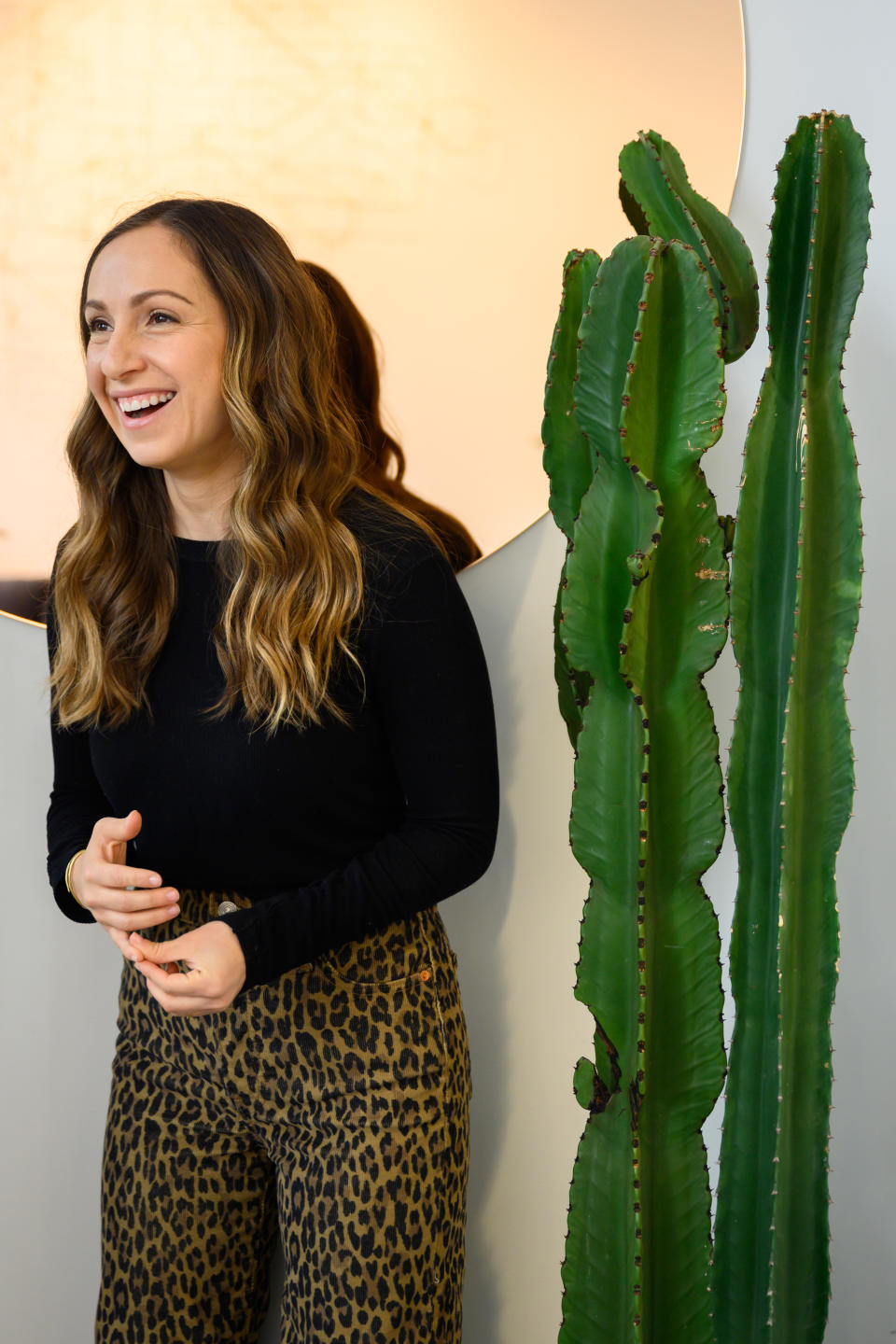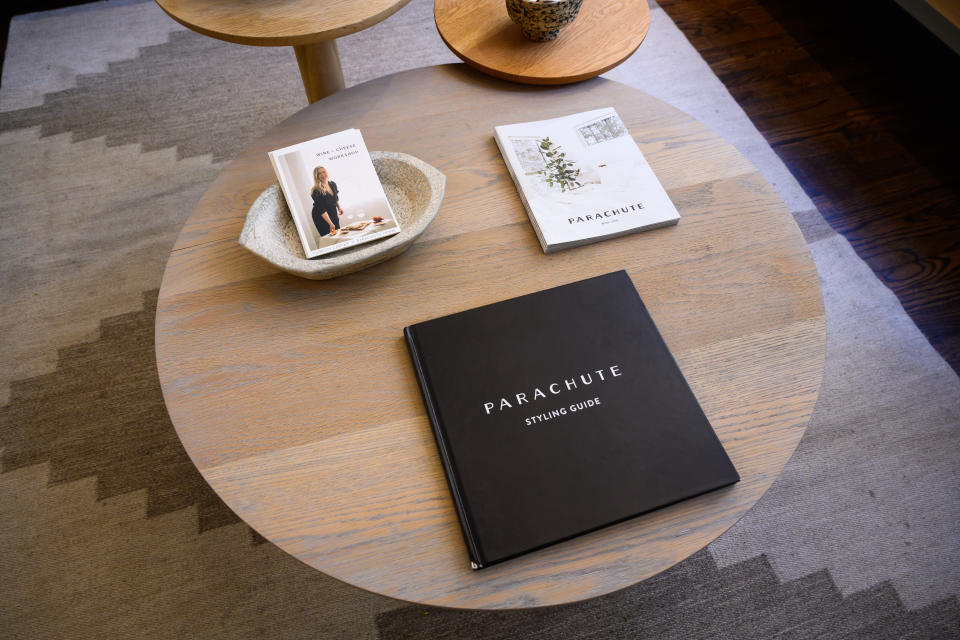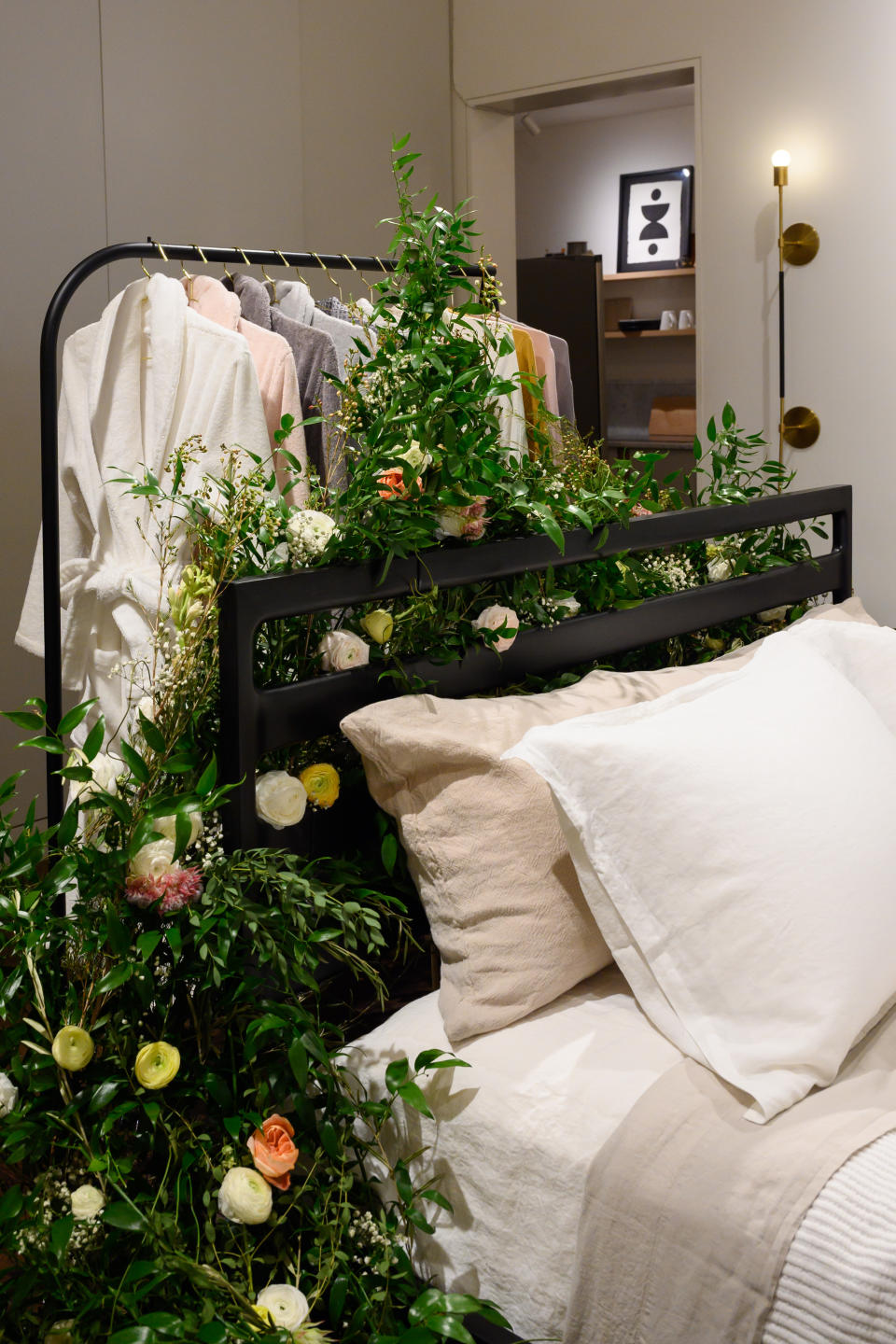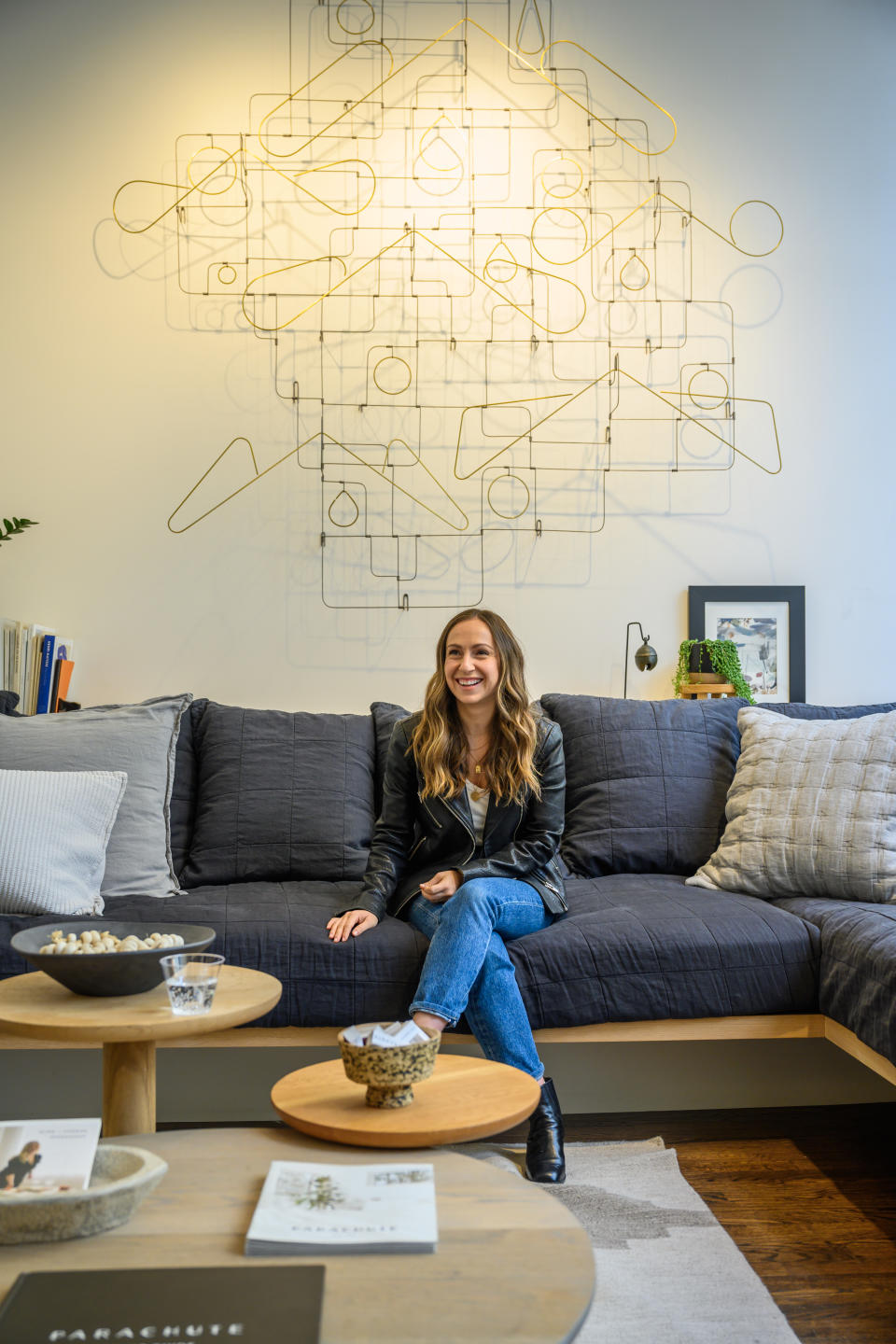How 1 woman turned a passion for design into a cult-favorite home brand
We are all works in progress; even the successful women you see owning it on Instagram faced stumbling blocks along the way and continue to work hard to stay at the top of their game. In this series, we're sitting down with the people that inspire us to find out: How'd they do it? And what is success really like? This is "Getting There."
You know the look — clean white spaces, softly rumpled sheets, beachy bedrooms and bathrooms decorated in elegant neutral tones. This casual California aesthetic, found in so many of the most Instagrammable homes, has one common denominator: Parachute.
That's the work (and look) of Ariel Kaye, founder and CEO of the home goods startup that dominates our social media feeds and decor dreams. From luxe bedsheets to cozy robes to throw blankets, towels and more, Parachute's offerings have built a cult following among homebodies who value quality and comfort in equal measure.
It all started when Kaye stopped pursuing a career in marketing to strike out on her own as an entrepreneur. Here's how she did it.
For more like this, follow TMRW on Instagram at @tmrwxtoday.
How did you decide that you wanted to pursue this as a business?
I had been in a huge marketing agency and wanted to do something where I could have a bigger impact and really get my hands dirty. I also really wanted to have a physical product. I wanted to do something where I could hold the product and say, this is adding value to someone's life.
I've been obsessed with home and interior design for as long as I can really remember and I had one of those aha moments where I thought, this could be the opportunity to connect my love of home and design and building brands and connecting with people.
The idea was to build a home brand, but I decided I wanted to start small and focused and decided that should be in the bedroom and with bedding.

You wanted a physical product, but did you have any experience with manufacturing?
None!
So was that intimidating at first?
There's a blessing and a real upside to being so inexperienced. I think if I knew how hard it would be and I knew all I didn't know at the time, I never would have taken the leap and I never would have taken the risk.
I started doing a lot of research and talking to anyone that would talk to me who had been in the product world — whether it was in fashion or in accessories — anyone who could give me any sort of insight into how to navigate that process. And then I started looking for factories.
What were some of the challenges you faced early on?
I mean, everything has really been a challenge, to be perfectly honest. But that's also what makes it so fun and so rewarding. I think people that are drawn to these early-stage start-up companies and jobs like to solve problems. There's a reason for the madness. It can be healthy and exciting.
In the beginning, just me figuring out how to order boxes and how to import our products from Europe was a challenge. I mean, there were a lot of Google searches.
Also personally as a founder, I was told that I was a little bit too laid-back and wasn't as aggressive and didn't show the hustle. Especially from investors who are looking for that, I think there was some doubt about my capability as a founder and as a leader. I got that feedback more than once and I really had to internalize it.
I had to push myself to show all the things that I was feeling inside and confidently show who I was and who I could be.

What were some of the things that helped you push past that?
I've never been more passionate about anything than I am about this business. And that was there from the beginning. I just had this relentless drive. I mean, honestly, there were so many moments where I knew it'd be easier to just give up and walk away, but I really believed in what I was doing.
Finding a good support system and people to lean on for those encouraging words and pep talks — late at night, middle of the day, early morning whenever you need it — was so helpful.
Were there any fears or anxieties that you had to overcome to get to this point? And how did you do that?
I think the fear of failure is ever-present. And the fear of not being good enough.
In many ways, fears can just end up being distractions from actually working and doing all the things that will allow you to avoid that fear becoming a reality.
I also find fear shows itself when I'm tired, when I'm not taking care of myself, when I'm not eating well. It just all manifests in these often irrational thoughts that can become fear and anxiety about whatever's going on. So taking care of myself has been really important.
On the flip side, was there a time when you realized this could be your next big thing?
There's been a few of those moments. Early on your business sort of evolves and changes completely every three months, or at least it feels that way.
But after we launched, we got this great press, and we started getting orders from people that I didn't know or I couldn't track back how they discovered us. Then it started to feel real.

We started with 20 orders a day and then 30 orders a day. There was a small feature on us in the Wall Street Journal, and, all of a sudden, we were getting 100 orders a day.
Then I was able to raise some capital, which allowed me to hire more people and actually have some folks sitting around the table with me who were excited about the opportunity too. That was a reassuring moment.
People were looking for products like ours and direct to consumer businesses were really gaining momentum and people were really appreciative of this new way to shop.
Has there been an experience recently that helped you to grow as an entrepreneur or pushed you to expand your thinking around your business?
I have an executive coach that I've been working with and that's been really helpful. It's made me think about how I'm showing up and how I'm navigating relationships with our team or investors or with media and really pushing myself to do the work that I want to do to continue to grow and evolve as a leader.
We also recently did a team 360 review. Hearing feedback from our own team about the things that are working and areas where we can improve has been a really great process. We've been really internalizing and putting together action plans for how we can continue to do what we're doing well and also how we can do things in ways that might be better in the future.

Some feedback I got, that I'm really focused on this year, is making sure that I'm 100% present in meetings and in communications. Between phones and Apple watches and computers, there are so many distractions. I think, from a productivity standpoint, if we just closed our laptops and listened and talked to each other in a more present way that there's a lot that can get done.
What does success mean to you?
I am a daily to-do list person. I like to make sure that I'm achieving things every day, so I look at success as just the whole journey. People ask about all these big-picture, end-of-the-road moments, but I like to focus on the now.
We just had our sixth anniversary and it feels like we're just getting started.

